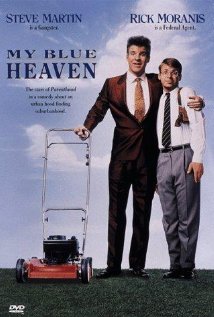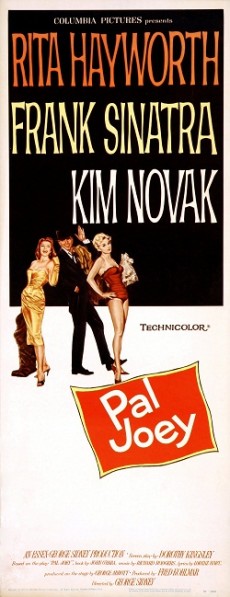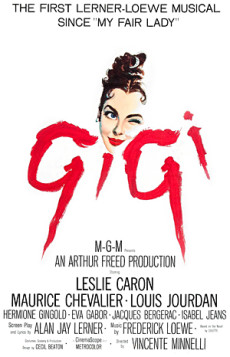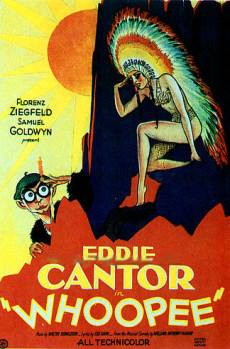
Hollywood On 52nd Street
My Blue Heaven is a popular song written by Walter Donaldson one afternoon at the Friars Club in New York City while waiting for his turn at the billiard table. At the time the song was written Donaldson was under contract to Irving Berlin, working for Irving Berlin Inc. publishing company. George A. Whiting wrote lyrics adapted for Donaldson’s music, and for a while, performed it in his vaudeville act.
The song was first used in the 1950 film of the same title starring Betty Grable and Dan Dailey. The song was eventually used once again in the 1990 crime comedy of the same name that starred Steve Martin and Rick Moranis. By the time it appeared in the soundtrack it had been a jazz standard for many years having been recorded by Jimmie Lunceford, Don Byas, Mary Lou Williams, Benny Carter, Maxine Sullivan, Erroll Garner, Red Norvo, Oscar Peterson, Lena Horne, Teddy Wilson and numerous others.
The Story: 1950 – Kitty (Grable) and Jack (Dailey), portray married radio stars who are expecting a baby. When she miscarries, they move from radio to television and and become determined to adopt a baby. 1990 -Vincent “Vinnie” Antonelli (Martin) is a good-hearted larger than life mobster in the witness protection program. Barney Coopersmith (Moranis) is an uptight FBI agent assigned to protect Vinnie and his wife Linda and puts them in a small California suburb. Both wives leave, Vinnie and Barney get closer but has a hard time keeping him at low profile. Come to find out this town is full of mobster in witness protection. Enter two hit men, new love interests for both and eventually Vinnie becomes a prominent figure in the town.
Sponsored By
www.whatissuitetabu.com

Hollywood On 52nd Street
Pal Joey makes its second appearance as a 1957 drama musical film starring Rita Hayworth, Frank Sinatra and Kim Novak. The Lady Is A Tramp and My Funny Valentine (Babes In Arms/1937), There’s A Small Hotel (On Your Toes/1936), I Didn’t Know What Time It Was (Too Many Girls/1939) were introduced in their respective Broadway plays and all make their debut in the film, while I Could Write A Book and Bewitched Bothered and Bewildered make sophomore appearances. All of the above compositions composed by Richard Rodgers and Lorenz Hart became jazz standards.
The Story: The setting is San Francisco; Joey Evans (Sinatra) is a second-rate singer, a heel known for his womanizing ways, calling women “mice”, but still charming and funny. When Joey meets Linda English (Novak), a naive chorus girl, he has stirrings of real feelings. However, that does not stop him from romancing a former flame and ex-stripper, now society matron Vera Prentice-Simpson (Hayworth), a wealthy, willful, and lonely widow, in order to convince her to finance his dream, “Chez Joey”, a night club of his own.
Soon Joey is involved with Vera, each using the other for his/her own somewhat selfish purposes. But Joey’s feelings for Linda are growing. Ultimately, Vera jealously demands that Joey fire Linda. When Joey refuses, Vera closes down “Chez Joey”. Linda visits Vera and agrees to quit in an attempt to keep the club open. Vera then agrees to open the club, and even offers to marry Joey, but Joey rejects Vera. As Joey is leaving for Sacramento, Linda runs after him, offering to go wherever he is headed. After half-hearted refusals, Joey gives in and they walk away together, united.
Sponsored By
www.whatissuitetabu.com

Hollywood On 52nd Street
“Thank Heavens For Little Girls” is from the 1958 Academy Award-winning film Gigi. Frederick Loewe and Alan Jay Lerner composed the song and lyrics and it went on to win the Academy Award for Best original Song in 1958. A cover version by Billy Eckstine peaked at #8 in the UK Singles Chart in 1959. The film starred Leslie Caron, Maurice Chevalier and Louis Jordan.
The Story: Set in turn-of-the-20th century Paris, the film opens with Honoré Lachaille, a charming old roué among high society. Dodging marriage Honoré is concerned with his bored nephew who enjoys hanging out with his mamita, Madame Alvarez and her precocious and carefree granddaughter Gigi. However she is sent away to be groomed as a courtesan and learn etiquette and charm. The two young people spend a lot of time together with the thought of taking Gigi as a mistress. Finally Gaston finds the thought unbearable with the help of high society. Taking Gigi home, he wanders the streets until finally ending back at Madame Alvarez’s door asking for Gigi’s hand in marriage. They couple are elegant, beautiful, and happily married. Honoré has been a framing device for the film, which can be seen as a romantic victory of love over cynicism.
Sponsored By
www.whatissuitetabu.com

Hollywood On 52nd Street
You Brought A New Kind of Love is the theme song from the 1963 romantic comedy film a New Kind Of Love starring Paul Newman and Joanne Woodward with supporting cast Thelma Rita, Eva Gabor, George Tobias and Maurice Chevalier. Frank Sinatra sang over the credits with music written by Sammy Fain and lyrics by Irving Kahal.
The Story: A womanizing American reporter assigned in Paris (Paul Newman) mistakes a cynical fashion copycat designer (Joanne Woodward) for a prostitute after she receives a makeover. He decides to interview her for a series of articles, and then falls in love with her. The girl goes along with it, first out of revenge as he snubbed her during a past encounter, then out of feelings of her own.
Sponsored By
www.whatissuitetabu.com

Hollywood On 52nd Street
Makin’ Whoopee! and My Baby Just Cares for Me are jazz classics. The former, a jazz/blues song with lyrics written by Gus Kahn and music by Walter Donaldson was first popularized by Eddie Cantor in the 1928 musical Whoopee!, and then reprised the role in the 1930 movie. Kahn and Donaldson also wrote the latter for the musical comedy film in 1930.
The title is a euphemism for sexual intimacy and the song itself has been called a “dire warning”, largely to men, about the “trap” of marriage. Makin’ Whoopee begins with the celebration of a wedding honeymoon and marital bliss, but moves on to babies and responsibilities, and ultimately on to affairs and possible divorce, ending with a judge’s advice.
The Story: In California Sheriff Bob Wells and the daughter of a rancher Sally Morgan are getting married. She, however is in love with Wanenis, whose part-Indian heritage presents difficulties. Sally abandons Sheriff Bob and their wedding, catching a ride with Henry Williams. Henry has problems of his own, being a hypochondriac, but Sally adds to his problems when she leaves a note saying they have eloped. A chase ensues, with the jilted Bob; Mary, who is Henry’s nurse and is in love with him; and a cast of others. Along the way they arrive at the Indian Reservation where Wanenis lives.
Sponsored By
www.whatissuitetabu.com


